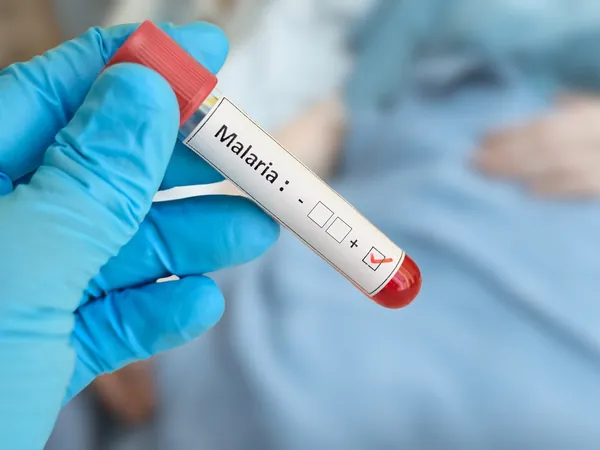
Navigating the Hidden Dangers of Malaria at Sea: Rethinking Prevention Strategies
2025-04-25
Author: Li
The Deadliest Creature on Earth
Forget sharks and snakes—the real killer on this planet is the mosquito. Responsible for over 600,000 deaths each year due to malaria, this tiny creature poses a significant risk for those working in tropical maritime environments.
A Rising Threat for Seafarers
Every year, as we observe World Malaria Day, we are reminded that, despite its preventability, malaria continues to plague vulnerable populations, particularly seafarers who traverse malaria-endemic areas.
The Maritime Health Crisis: A Cautionary Tale
In a harrowing incident from 2014, the Republic of the Marshall Islands issued a Marine Safety Advisory after five crew members aboard a vessel experienced malaria infections, resulting in four fatalities. Symptoms were initially mistaken for flu, delaying critical treatment.
This tragedy urged an overhaul in crew training and medical preparation strategies, emphasizing the need for tailored clinical guidance for those at sea.
When Prevention Backfires: A Real-Life Example
Onboard a ship headed to Ivory Coast, a group of healthy male seafarers began taking Eloquine (mefloquine) for malaria prevention. Shortly after starting, four crew members reported debilitating side effects ranging from insomnia and fatigue to severe anxiety and transient facial swelling.
With no alternative medications on board, they had to continue their journey without protection in malaria-prone waters, relying only on supportive care for their symptoms.
The Dark Side of Mefloquine
While mefloquine is popular for its convenient weekly dosage, it comes with significant risks, including neuropsychiatric side effects like anxiety and sleep disruption. Physical side effects can compromise a seafarer’s ability to perform effectively, even if they remain free from malaria.
Safer Alternatives Are Available
There are viable alternatives to mefloquine that warrant consideration:
- **Doxycycline**: A daily antibiotic with minimal side effects, although it may cause sun sensitivity.
- **Atovaquone-proguanil (Malarone)**: A once-daily pill that has proven effective with few side effects, ideal for shorter voyages.
A New Perspective on Maritime Health
Traditional maritime health strategies often view disease prevention merely as a physical challenge. However, the mental and emotional well-being of seafarers is equally critical. When anti-malarial medications impair cognitive or emotional function, it becomes a safety concern for the crew.
Spotting Early Warning Signs
Recognizing mental health changes promptly is crucial. Crews should look out for subtle shifts in behavior, including fatigue, anxiety, or irritability.
Empowering Seafarers: Practical Mental Health Strategies
Beyond adhering to company protocols, individuals can proactively maintain their mental health by:
- Monitoring daily for changes in sleep or mood.
- Practicing quick stress-relief techniques.
- Maintaining a consistent routine.
- Staying connected with shipmates to foster open dialogues.
- Utilizing resources such as stress-relief tools.
Redesigning Prevention Policies
Lessons learned from past incidents highlight the need for comprehensive malaria prevention policies that involve:
- Individual risk assessments for crew members.
- Clear education on potential side effects of medications.
- Access to multiple antimalarial options on board.
- A structured protocol for monitoring and managing symptoms.
Preparing for a Healthier Future
Preventing malaria effectively requires more than just distributing medication; it calls for a holistic approach to seafarer health.
As we reflect on World Malaria Day, it’s essential to broaden our understanding of risk—not only from the disease itself but also from the interventions we use against it. Only then can we ensure that no crew member has to choose between safety and well-being while navigating perilous waters.





 Brasil (PT)
Brasil (PT)
 Canada (EN)
Canada (EN)
 Chile (ES)
Chile (ES)
 Česko (CS)
Česko (CS)
 대한민국 (KO)
대한민국 (KO)
 España (ES)
España (ES)
 France (FR)
France (FR)
 Hong Kong (EN)
Hong Kong (EN)
 Italia (IT)
Italia (IT)
 日本 (JA)
日本 (JA)
 Magyarország (HU)
Magyarország (HU)
 Norge (NO)
Norge (NO)
 Polska (PL)
Polska (PL)
 Schweiz (DE)
Schweiz (DE)
 Singapore (EN)
Singapore (EN)
 Sverige (SV)
Sverige (SV)
 Suomi (FI)
Suomi (FI)
 Türkiye (TR)
Türkiye (TR)
 الإمارات العربية المتحدة (AR)
الإمارات العربية المتحدة (AR)